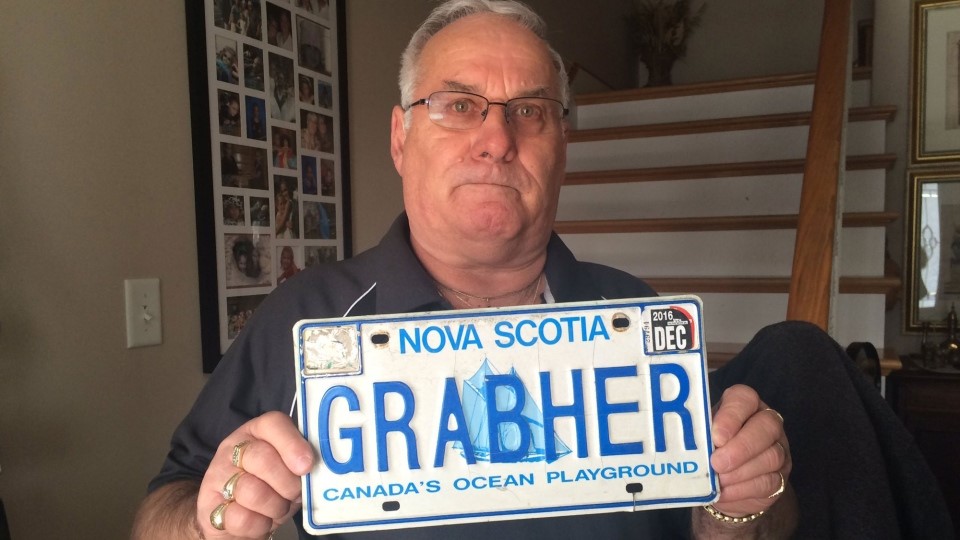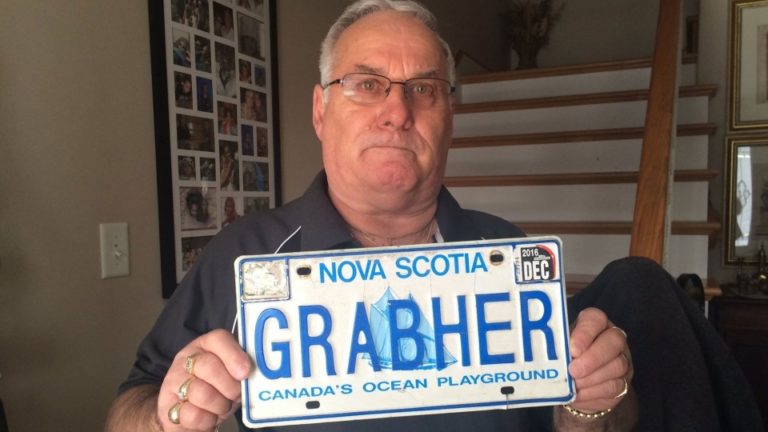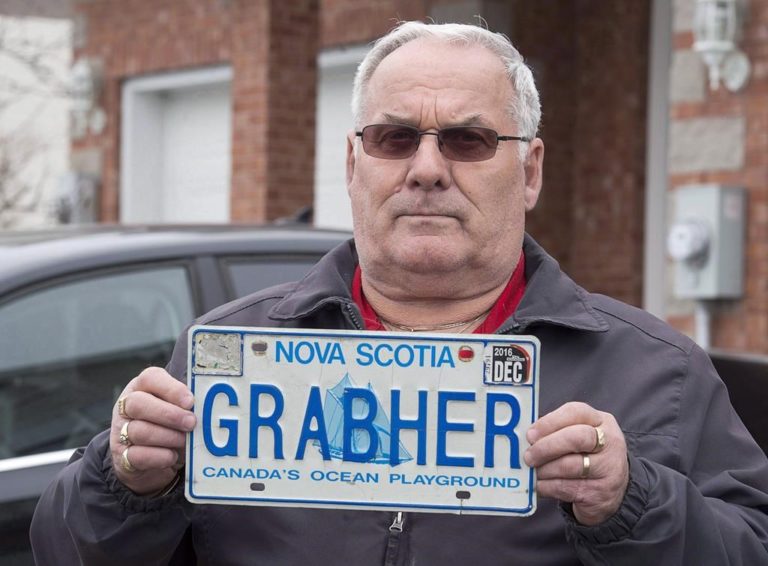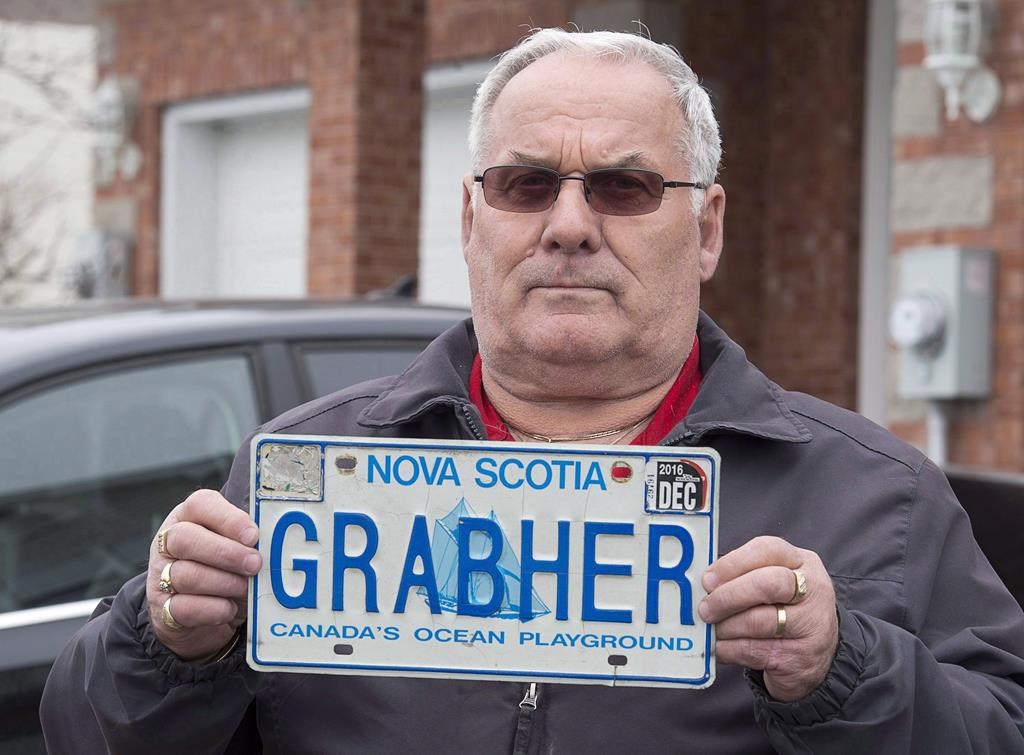The Justice Centre filed a court application against the Nova Scotia Registrar of Motor Vehicles (the “Registrar”) after it refused to reinstate the personalized licence plate of Dartmouth, NS pensioner Lorne Grabher, whose surname was deemed too “socially unacceptable” for the road.
Lorne Grabher is a retired senior citizen in his 70s, who was formerly a prison guard. He wore his name on his uniform his entire career without anyone saying it was offensive. He first purchased the personalized license plate as a gift for his late father in 1991. It has since become a source of family pride, spanning three generations – Grabher’s son has the family name on his own personalized Alberta license plate. The Nova Scotia government received a lone complaint from an unidentified individual in 2016 about the plate. On December 9, 2016, the Nova Scotia Registrar of Motor Vehicles notified Mr. Grabher that his plate had been cancelled. The letter claimed the plate could be “misinterpreted” as a “socially unacceptable slogan.”
The Justice Centre wrote to the Registrar on March 31, 2017. In its letter, the Justice Centre calls out the Registrar’s decision as “discriminatory,” “arbitrary,” “unreasonable” and in violation of free expression as guaranteed by the Canadian Charter of Rights and Freedoms. It further states that the decision is “an affront to the dignity of Canadians, and particularly those Canadians who are not of Anglo-Saxon descent.” The letter advised the Registrar to reinstate the plate or face further legal action. The Registrar responded on April 6, 2017, indicating that it would not voluntarily reinstate Mr. Grabher’s plate.
On behalf of Mr. Grabher, the Justice Centre filed a Notice of Application with the Nova Scotia Supreme Court on May 11, 2017. A substantive hearing into Lorne Grabher v. Registrar of Motor Vehicles was heard April 24-25, 2019. Mr. Grabher’s claim was based on freedom of expression and equality rights as protected by the Canadian Charter of Rights and Freedoms.
In also challenging the constitutionality of the pertinent Regulation relied on by Nova Scotia, Mr. Grabher pointed to a list of “banned” words the province has compiled to illustrate the arbitrary system by which the province regulates personalized plates. The list prohibits the use of many harmless words, such as “FENCE”, “AND”, “SAMPLE”, “NONE”, “SAFE”, and “GOLD”. On January 31, 2020, Justice Darlene Jamieson found that the list was largely irrelevant and denied Mr. Grahber the return of his licence plate.
Justice Jamieson legitimized governments’ use of words like “Dildo”, “Crotch”, “Swastika” and “Sh*t”, and phrases such as “Negro Lake” and “Blow Me Down”, on public property, but ruled that Mr. Grabher cannot use his family name on a licence plate because it might be “offensive”. Justice Jamieson also disagreed with a recent Manitoba Court ruling in finding that “the nature of a [personalized] licence plate is not compatible with free expression.”
She held that “the provincial government cannot sanction having vehicles with government-owned plates traveling the highways of this province and country bearing messages that could be considered ‘offensive or not in good taste.’” A recent ruling out of Manitoba found that personalized licence plates are a form of free expression protected by the Charter, but Justice Jamieson disagreed.
Justice Jamieson relied heavily on a report by Professor Carrie Rentschler, a McGill University professor of “feminist media studies” who specializes in things like “the construction of new political subjectivities,” “emergent forms of social collectivity,” and “the shape and practice of contemporary feminisms in social media networks and hashtag publics.”
Professor Rentschler suggested that the “GRABHER” licence plate supports or increases violence against women; that exposure to cultural slogans normalizes sexual violence against women; that Mr. Grabher’s plate creates an elevated risk of rape; and that Mr. Grabher’s surname is a statement in support of physical violence against women. During cross examination at trial, Professor Rentschler testified that the neighborhood would be safer if Mr. Grabher put his car in the garage at night than if he left it on the driveway with the plate showing.
Mr. Grabher contends that his last name is not a slogan. For Mr. Grabher, this case and the latest ruling denying him his license plate, is about his family’s name, personal dignity, and the ongoing insult by the Nova Scotia government in its censorship of the plate, as if his surname is not acceptable.
On March 9, 2020, the Justice Centre legal team announced Lorne Grabher will appeal the decision of the Nova Scotia Supreme Court. The case has been set for a full day appeal hearing on January 19, 2021.
“Arbitrary and capricious censorship is a threat to the expressive rights of Canadians,” states Jay Cameron, Litigation Manager and counsel for Lorne Grabher. “Mr. Grabher should be able to proudly display his last name without a court ruling it is offensive. We look forward to the next stage of these proceedings.”





